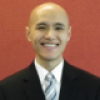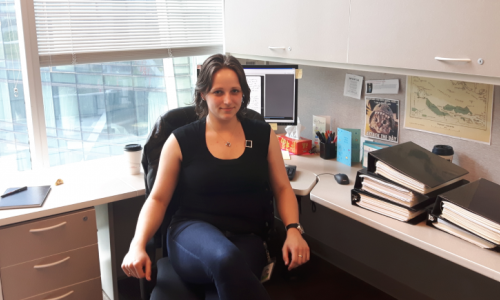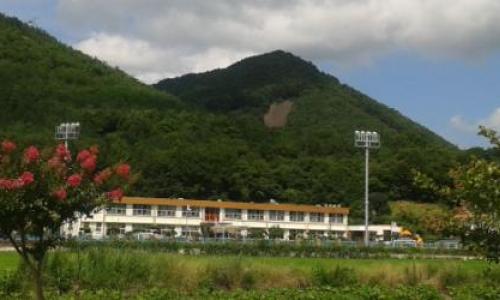
As the semester draws to a close, you are likely preparing for your final exams and writing your final papers. It is understandable to look forward to a relaxing break during the winter holidays, one that will be devoid of any intellectual effort. However, I encourage you to reconsider this popular stance and, instead, treat it as an excellent time to jump ahead in your job search, conduct information interviews with key professional contacts, and stand out among your peers in the eyes of potential employers. I don't propose this as a mere thought experiment. In fact, I speak from experience: I applied this strategy and got a job immediately after I graduated. Here’s the story of how that happened.
In September 2011, I moved to Toronto to begin an eight-month master's degree in statistics at the University of Toronto. I really liked the short duration of the program – most master's degrees in statistics require 2 years to complete – but it also meant that I had only eight months to look for a job. I fully intended to work right after my degree, and the prospect of finishing school without having a job was distressing. While I was cautiously confident about my qualifications and remaining optimistic about the job market for statisticians in Toronto, I did not have a single professional contact there when I first arrived. Throughout the next eight months, I needed to learn about the local job market and industry dynamics; establish a professional network; and seek the necessary mentorship to open any hidden doors, overcome potential barriers, and avoid unforeseen pitfalls.
I did my best during my first two weeks in Toronto to begin this process. I met with a career advisor at the University of Toronto's Career Centre, and I received some helpful advice from my graduate chair. However, when courses began, I needed to focus on my studies – my program was incredibly intense. I devoted less time to my job search during the semester, but I still tried to attend professional seminars and networking events for statisticians whenever they arose.
Toward the end of my semester, my efforts started to pay off. I was eating my lunch in between the morning and afternoon sessions at a Toronto Area SAS Society (TASS) meeting (a quarterly gathering of analytics professionals who use SAS, a popular statistics and analytics software). I was tired and stressed in anticipation of my last final exam, and the statistics department's Christmas party was about to begin. I desperately wanted to skip the afternoon session and go to the party for some relaxation and food, but I forced myself to stay, just in case I could make a few more contacts. In retrospect, that was the turning point of my entire job search.
One presenter in the afternoon session delivered a lively presentation on JMP, a powerful point-and-click software for data manipulation and statistical analysis. I later learned that he worked at an analytics consulting company called Predictum. After his presentation, I approached him to ask some more questions about JMP's capabilities, and we exchanged our contact information.
When my final exams and projects were finally over, I took some time to celebrate a successful end to a very stressful first semester. My classmates were planning post-exam celebrations and holiday getaways– all of which sounded very enticing – but it dawned on me that this was the perfect time to approach potential employers for informational interviews. After all, most organizations have light workloads during the winter holidays, so my potential employers were more likely to be available. I was completely free of any academic responsibility, and I could make a strong impression on employers by actively seeking their advice when most (perhaps all) students were taking a break. I eventually met three potential employers for informational interviews during my holiday break, including the one from Predictum, and had two more helpful conversations with other professional contacts whom I met at past networking events.
I had an even tougher second semester, in part because I was busily meeting employers for almost ten job interviews from January to April. I had an especially productive conversation with the presenter from Predictum, and he later offered a job to me. I started working for Predictum five days after I finished my last final exam!
Looking back, my perseverance to stay for that afternoon session at the TASS meeting in December and actively seek information interviews during that winter break were essential to my eventual success in getting the job. One of the other employers whom I met in an informational interview that December also approached me about a job opening – shortly after I had already accepted Predictum's job offer.
I did not spend my entire Christmas holiday in 2011 on my job search; I explored Toronto, discovered some wonderful restaurants, and spent quality time with new friends. It was a good balance between job search activities and relaxation, and it invigorated me to begin my second semester on a high note.
It is possible to simultaneously keep our brains sharp and enjoy our holidays with our loved ones, and conducting informational interviews is a great way to maintain the intellectually active side of that balance. It requires a lot of mental and emotional effort, but it is a refreshingly different flavour of effort from that of our studies. Furthermore, it plays a more direct role in our eventual success in getting a great job – a strong incentive to persist in job searching when others are resting and abstaining from that process. This contrarian strategy worked well for me, and I encourage you to try it out as you plan your upcoming holidays.
P.S. During this past summer, a bioinformatician from the British Columbia Centre for Excellence in HIV/AIDS recommended me for a job in its Laboratory Program to conduct research and provide analytical support in statistics. I was thrilled about the opportunity to come back to Vancouver and work for a world-renown organization to study HIV at the genetic and biochemical levels, but I was sad to leave Toronto and Predictum. I really enjoyed working in that city, and I am especially grateful to Predictum for giving me that opportunity to start my career.















